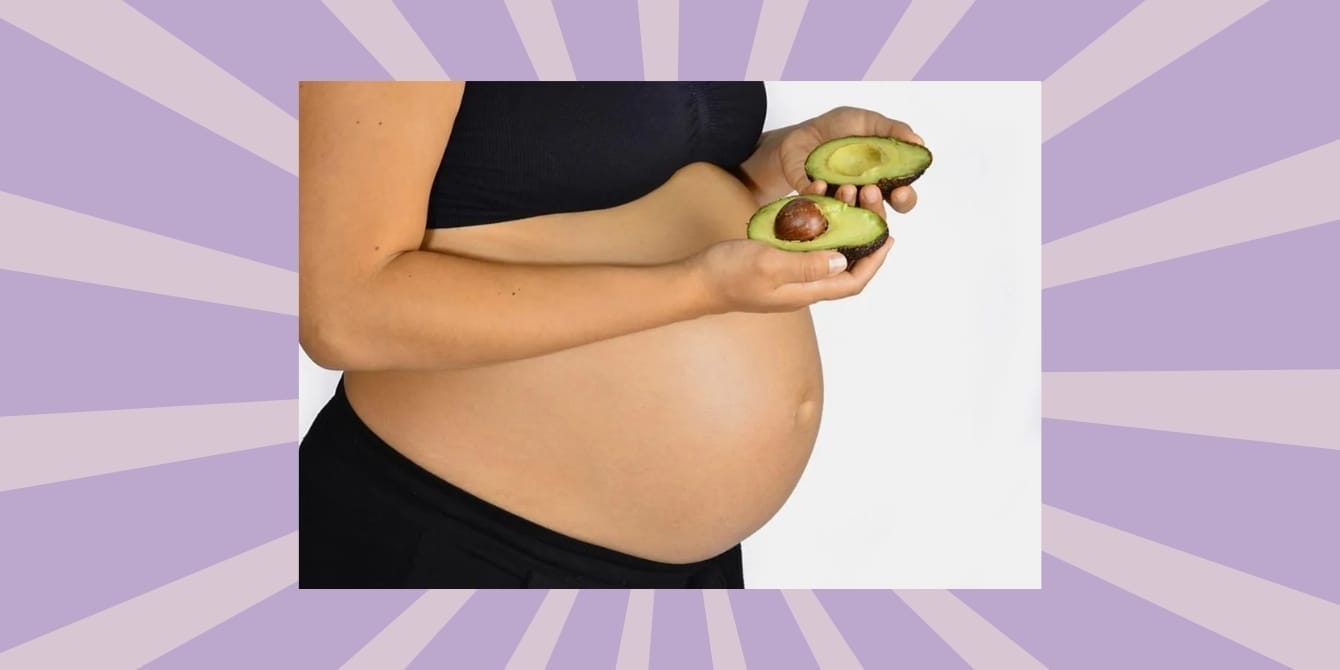Holy guacamole—this is big news for pregnant mamas everywhere. If you’ve been craving avocados, you’re not just fueling your body with healthy fats—you might also be giving your baby a boost in immune support during pregnancy, thanks to this powerhouse of prenatal nutrition.
A new study published in Pediatric Research has found that eating avocados during pregnancy may significantly lower your baby’s risk of developing food allergies by age one. And no, this isn’t some wellness trend—it’s real science backed by a large-scale cohort study of 2,272 pregnant participants.
What the study found
Pregnant participants who consumed any amount of avocado during either their first or third trimester had 43.6% lower odds of reporting food allergies in their child’s first year. These findings held true even after adjusting for lifestyle and health factors such as smoking, diet quality, BMI, and breastfeeding.
This is one of the first studies to directly link avocado intake to lower food allergy risk in infants—and it could be a game-changer in how we think about prenatal nutrition.
“The potential benefit of avocados during pregnancy might be explained by various mechanisms at the nutrient level,” the researchers wrote.
Let’s break that down.
Related: FDA approves drug to help protect against food allergies—including milk, eggs and nuts
How could avocados help prevent food allergies?
We know that what you eat during pregnancy can have lasting effects on your baby’s development. This concept—called maternal exposure—suggests that nutrients from your diet help shape your baby’s gut microbiome and immune system, even before birth.
Avocados pack a unique trio of nutrients that may work together to lower food allergy risk:
Antioxidants like Vitamin E and Zinc:
These immune-boosting nutrients help support healthy immune programming during fetal development. According to NIH, higher antioxidant intake during pregnancy is linked to reduced allergy risk in children.
Dietary Fiber
One avocado has over 9 grams of fiber, which is excellent news for both digestion and immune function. As per Harvard T.H. Chan School of Public Health, fiber helps nourish beneficial gut bacteria, leading to the production of short-chain fatty acids—molecules believed to lower inflammation and protect against allergic responses later in life.
Why this matters now more than ever
Food allergies are on the rise—they’re not just inconvenient—they can be life-threatening. According to the CDC, food allergies in children increased by 50% between 1997 and 2011, and today, 2 in 5 children are sent to the ER for allergy-related reactions each year.
While many allergy-prevention strategies focus on introducing allergenic foods early in infancy (like peanuts or eggs), this research suggests we may need to shift our thinking—because prevention might begin even earlier: in the womb.
So, should you eat more avocado?
If you’re pregnant and avocado agrees with you, there’s really no downside to adding it to your diet. It’s nutrient-dense, naturally low in sugar, and rich in folate—another crucial vitamin for fetal development. Of course, always talk to your healthcare provider before making any significant changes to your diet.
How it helps
Researchers suggest that avocado’s antioxidants (like Vitamin E and zinc), dietary fiber, and healthy fats may help regulate the fetal immune system and reduce inflammation, laying the foundation for allergy prevention. Fiber, in particular, supports beneficial gut bacteria that produce short-chain fatty acids, which may lower allergy risk.
Pro tips: Delicious ways to sneak in more avocado
- Avocado toast with a sprinkle of hemp seeds or chili flakes
- Green smoothies with avocado, spinach, banana, and Greek yogurt
- Stuffed avocado halves with chickpeas or tuna salad
- Avocado chocolate mousse (yes, really—it’s creamy and packed with goodness!)
While more research is needed to solidify the link between avocado and food allergy prevention, this study adds to a growing body of evidence that what you eat during pregnancy can have long-term health benefits for your child.
So go ahead—enjoy that extra scoop of avocado, mama. You’re nourishing more than just yourself. You’re shaping a healthier future for your little one.
Related: How to expertly manage your child’s food allergies during events and holidays—and have peace of mind
Source:
- Lower child food allergy risk. Pediatric Research. 2025. “Avocado consumption during pregnancy linked to lower child food allergy risk.”
- Immune-boosting nutrients that help fetal development. National Library of Medicine. 2013. “The Relationship of Docosahexaenoic Acid (DHA) with Learning and Behavior in Healthy Children.”
- Excellent for both digestion and immune function. Harvard T.H. Chan School of Public Health. “Fiber helps nourish beneficial gut bacteria, leading to the production of short-chain fatty acids.”
- Food allergies are on the rise—and they’re not just inconvenient. National Center for Health Statistics. 2008. “Food Allergy Among U.S. Children: Trends in Prevalence and Hospitalizations.”

